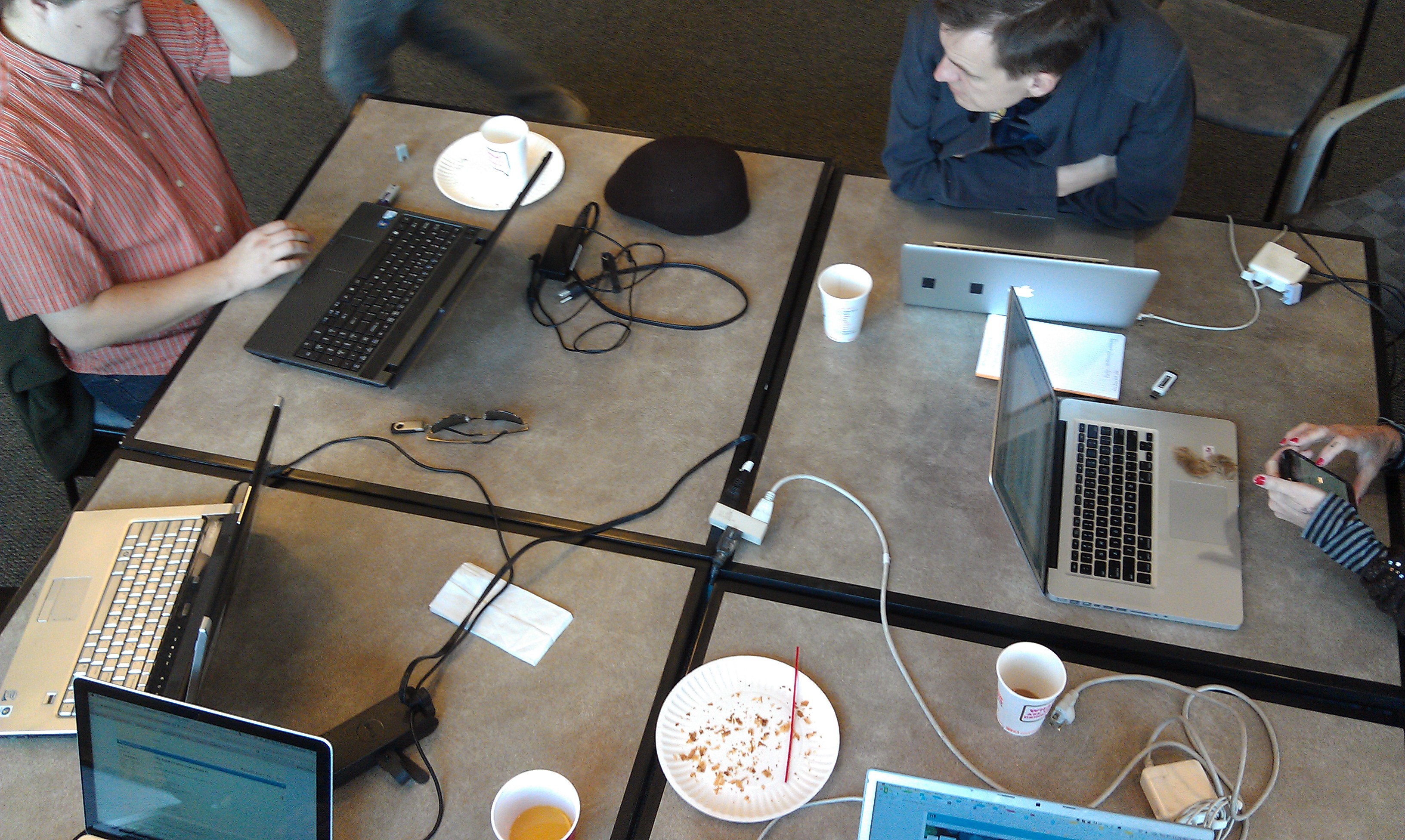Issue-Oriented Hackathons

Hackathons have become a cultural phenomenon of sorts – at least once a month there seems to be another one happening. Some of these are focused on a specific technology or platform (such as javascript or mobile hackathons), but increasingly they are what we call issue-oriented hackathons: events at which groups of people come together to address socially-oriented “challenges” through the development technical interventions, usually software, sometimes hardware. Since the summer of 2012 we’ve been researching issue-oriented hackathons, taking on roles as both critical observers and reflective participants. We are particularly interested in so-called civic hackathons and hackathons related to food and food systems.
In addition to studying how issue-oriented hackathons might contribute to the articulation of issues and the formation of publics, we are also interested in probing the existing and possible relationships between hackathons and design. Are hackathons a site of design? A mode of design? Or something altogether different?
One possibility is to consider hackathons as a mode of ad-hoc design: a design practice that is equally intentional and contingent. This ad-hoc design serves two purposes. First it enables a dynamic process of invention, distributed across events, and second, it facilitates experimentation in orienting people and resources toward issues.
This research is ongoing and, hopefully, will provide insight into new modes of collective action and design, while also illuminating the rhetorics and limitations of hackathons as sites and practices of innovation and civics. The research is being conducted with Carl DiSalvo and Melissa Gregg (Intel).
–
I have written and presented on this research for the Digital Labor Conference. That writing can be found here.
There are two forthcoming publications, one in New Media and Society and another for the Proceedings of the Participatory Innovation Conference (The Hague, Netherlands).